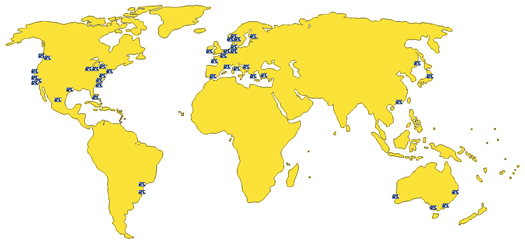Displaying items by tag: UK Halsey
UK Halsey Badge Now on Irish Sails
Sails bearing the UK Halsey badge are appearing from the McWilliam Sail loft in Crosshaven, Co. Cork just two weeks after the announcement that Cork sailmaker Des McWilliam has been appointed head of one of the world's largest sailmaking firms.
He will replace American sailmaker Butch Ulmer - the "U" of UK - who is retiring.
UK-Halsey was founded in City Island, New York in 1946 as Ulmer Sails and now has a network of sail lofts around the world, with 17 in North America, 21 in Europe, 3 in Asia, 4 in Australia, and two in South America. It has a reputation for using the most advanced techniques and technology to build long-lasting and fast sails.
The McWilliam loft in Crosshaven, which has been in business for 40 years, will become the nerve centre for development of the group.
McWilliam will continue to employ six manufacturing and service staff in the Cork harbour premises, including recent recruit Kenneth Rumball, the Irish Fireball dinghy champion.
McWilliam is a prestigious brand name - suits of their sails have equipped competitors in the Admiral's Cup, incorporating the Fastnet, and other international and national yachting events.
The first sail produced in Crosshaven under the new name was a spinnaker for a Dehler 34, followed by a Mermaid jib and a mainsail using the latest Titanium technology for a 50-foot yacht.
"I like the idea that we're sitting here in our old stone watermill in Crosshaven talking about high-grade aerodynamics across the world," McWilliam said, "however, I'm just as happy designing good sails for people who are passionate about getting out in a boat".

Locations of UK Halsey lofts around the world which are managed from Crosshaven by Des McWilliam





























































